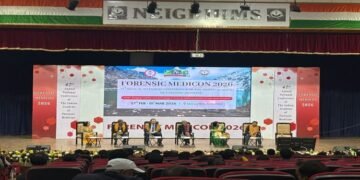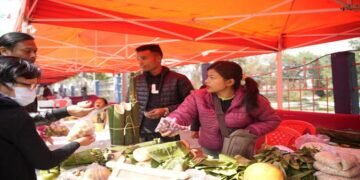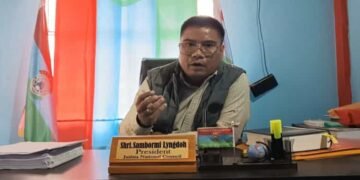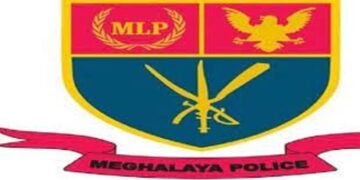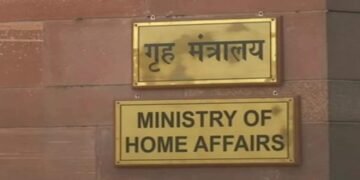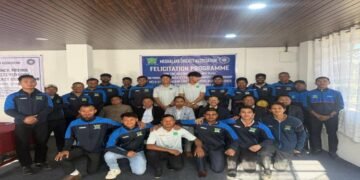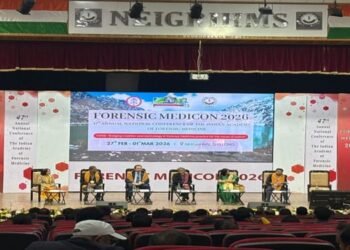Shillong ( Meghalaya ), Jan 10 : The new and highly mutated variants of the coronavirus will continue to evolve as long as the virus is able to infect, replicate and transmit itself to other susceptible people in communities with low-adherence to COVID appropriate behaviour (CAB) and low-vaccination coverage.
The effective way to stop generation of variants is to stop further viral infection and transmission through strict community adherence of CAB and Vaccination of the eligible population.
Emergence of the new and highly mutated Omicron variant of the coronavirus which has higher transmissibility than the Delta variant has been a concern all over the country and the world.
In view of this, the Health Department in consultation with the State Medical Expert Committee (MEC), the State COVID Task Force, and State COVID Response Team advises the following state-specific guidelines for testing, quarantine, vaccination, and public communication.
1. Testing:-
i) At Entry Points/Borders
a) Testing at entry points will be continued even for those who have been fully vaccinated for a limited period of time during the current surge of cases and until further orders.
b) All persons entering the State, including those fully vaccinated, have to produce a Negative RT-PCR Report or undergo a mandatory RT-PCR test at the entry points. The entrants producing a Negative RT-PCR Report should have been tested at a recognized laboratory within 72 hours of their arrival at the entry point.
c) Children below the age of 15 years shall be exempted from testing at entry points, if asymptomatic.
d) It is mandatory for those being tested at the COVID Screening Centres to isolate themselves at their home or place of stay till the receipt of the test reports.
However, the order from the Political Department issued vide letter No. POL.75/2020/Pt I/118, dated Shillong, the 4th January, 2022 is also to be taken into consideration on certain exemptions given in this regard.
ii) At Government/Private Hospitals
a) COVID Testing should be done only if the patient is symptomatic.
b) Asymptomatic patients are to be exempted from COVID testing unless it is recommended by the treating doctors. This is to facilitate better health seeking behaviour for all other medical conditions besides COVID.
c) Children below the age of 15 years should be exempted from testing, if asymptomatic.
d) Elderly and Co-morbid individuals are to be given special attention if symptomatic and tested positive.
e) Early testing and treatment are of utmost importance considering the biphasic nature of COVID-19 Delta variant infection.
2. Quarantine & Isolation: –
a) COVID Positive patients need to undergo Isolation for 7 (seven) days since the day they are tested positive and the patient should not experience any fever or other symptoms for at least 3 consecutive days before the discharge.
b) All positive cases must self-monitor their health during the isolation period and reach out for immediate medical help if they experience severe symptoms such as breathlessness.
c) The unvaccinated persons (who are more vulnerable) under quarantine or isolation sees no improvement after 5 days, need to seek medical help immediately.
d) All Asymptomatic patients and High Risk contacts to quarantine or isolate for 5 days. They strictly need to continue to wear a mask around others for 5 additional days.
e) Those who complete their quarantine or isolation may not need any discharge certificate if the isolation was at home. They shall be deemed to be discharged on completion of such isolation period. However, if any of them want a discharge certificate, they may contact the nearest Public Health facility for the same.
3. Vaccination: –
a) It is urged that all eligible individuals should take the vaccine, as proven evidence shows that the severity of COVID infection is significantly reduced even if infected.
b) Children between the age group of 15years to 17years should be vaccinated at the earliest.
c) Healthcare workers, frontline workers and others who have completed 9 months, i.e 39 weeks from the date of administration of the 2nd dose need to be prioritized to receive their precautionary dose immediately.
4. Public Communication: –
a) It is important to educate the public and spread the message that as per available data, the new Omicron variant is highly infectious but less virulent than the present Delta strain, in terms of severity of symptoms. Therefore, there should be no panic, as it can be properly managed at home, unless co-morbid or unvaccinated.
b) People testing positive or those having COVID like symptoms should exercise social responsibility and alert the others who they may have come in contact with, especially if CAB has not been followed or even otherwise. This will help the other High Risk contacts monitor their health and take precautions accordingly.
c) Public Health messaging needs to be adapted for unvaccinated people with comorbidities as they have a higher risk of developing complications due to COVID. They must be motivated to take the vaccine and should practice COVID appropriate behavior all the times to reduce the risk.
d) Those who become symptomatic and see no improvement after 5 days of showing symptoms are advised to seek immediate medical help.
e) It is important to keep following the three non-negotiable COVID appropriate behaviour: (a) always wear a mask, (b) maintain physical distance at all times, and (c) wash/sanitize hands frequently.
f) IEC Materials should be disseminated for reiterating COVID Appropriate Behaviour with a focus on rural areas, especially in Tourism hotspots.
Sd/-
(Sampath Kumar, IAS)
Principal Secretary to the Government of Meghalaya,
Health & Family Welfare Department.


